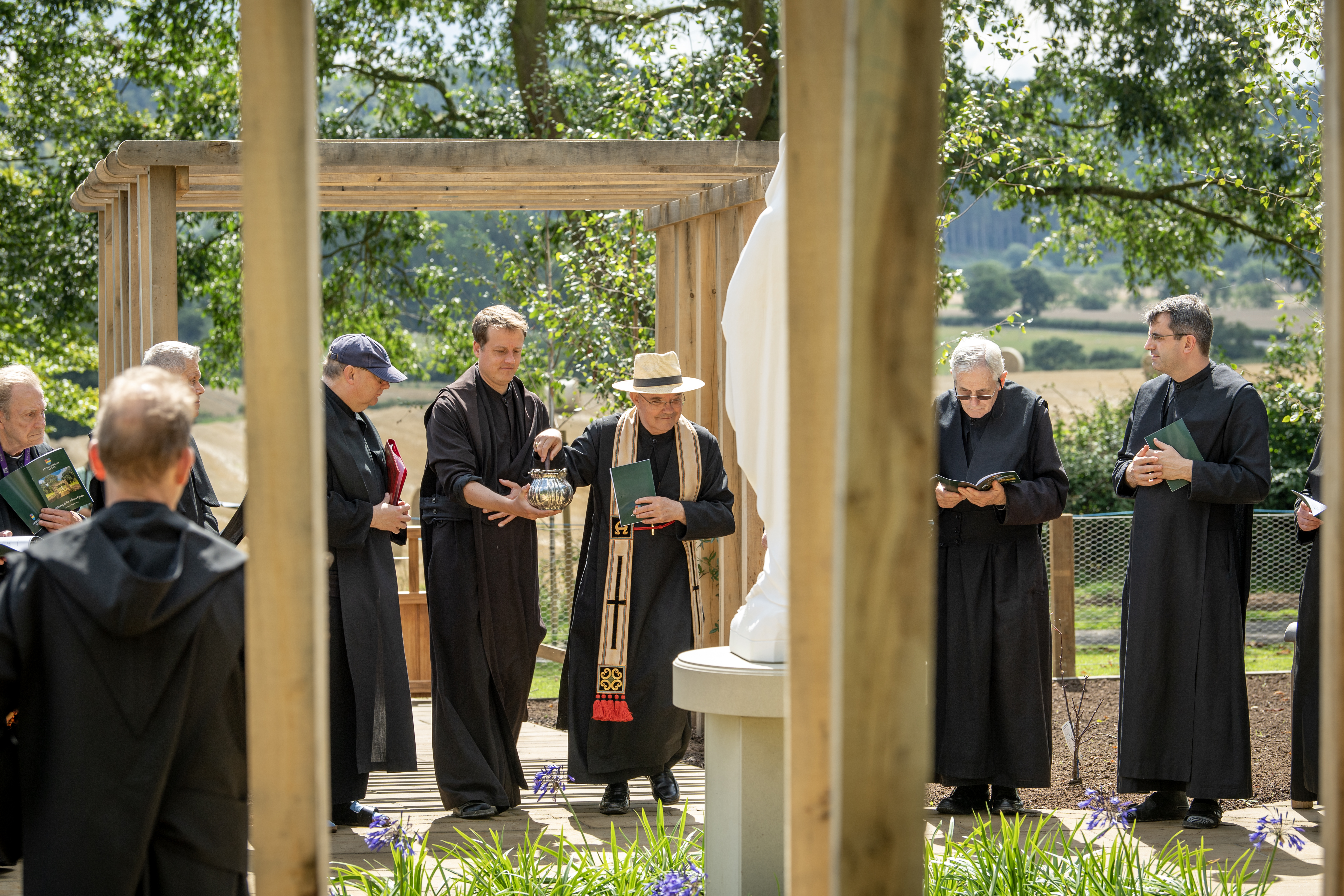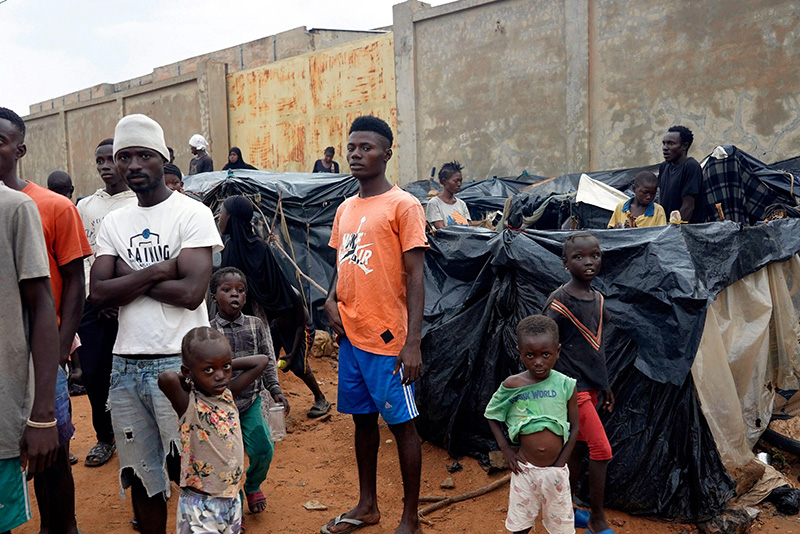Catholic bishops in Ghana joined several bishops’ conferences in West Africa in expressing concern at the effects of the coup in Niger on 26 July, but warning against military action by other regional powers.
In a statement, the Ghanaian bishops said they were “opposed to any military intervention against the coup makers in Niger, as this will exacerbate the already precarious situation in that country where civilians such as women, children, aged, weak and vulnerable in society are bearing the biggest brunt of the chaotic situation”.
Two members of the Society of the Missionaries of Africa (the White Fathers) were released on 23 August after three weeks in captivity in Nigeria. Fr Paul Sanogo, from Mali, and Tanzanian seminarian Dominic Merikiory Mahinini were kidnapped from their parish in the Diocese of Minna on 2 August.
The provincial superior of the Missionaries of Africa in Ghana-Nigeria, Fr Dennis Dashong Pam, thanked people for prayers and moral support and reported: “They are both fine, alive and healthy despite the traumatising experience they went through in the hands of their abductors.” The superior general of the Missionaries Africa, Fr Stan Lubungo, said “we feel relieved”.
Zimbabwean President Emmerson Mnangagwa of ZANU-PF has been declared winner for a second term in the country’s presidential election last week with 52.6 per cent of the vote. However, the poll was marred by electoral malpractice and the result is being challenged by political opponents.
The country’s Catholic bishops had called for peaceful elections and their Justice and Peace Commission deployed 1,500 election observers across the country as votes were cast for presidential and parliamentary candidates on 23 August. They also called upon Electoral Commission officials to ensure they delivered free, fair, and credible polls.
On 24 August, the Justice and Peace Commission noted positive points of the election, including the high turnout, a peaceful voting climate and the willingness of the Electoral Commission to listen and cooperate with all the parties involved in the electoral process.
However, it also listed a series of irregularities such as delays in the opening of various polling stations, the lack of electoral material, attempts to intimidate voters by the wearing of t-shirts with party logos in some polling stations and some voters finding their names were not on the electoral register.
Foreign poll observers, including from the regional Southern African Development Community said on 25 August that the elections had failed to meet regional and international standards.
At least seven people were killed in Haiti last Saturday after a gang that controls a northern suburb of the capital Port-au-Prince opened fire with machine guns on a church-led protest against gang violence. Some on the protesters were kidnapped. Marchers later said they had thought the march was peaceful and did not know that it was a challenge to the gang.
Many Haitians have joined civilian self-defence groups known as “Bwa Kale”, a movement that has inspired hope but also sparked retaliation against civilians. Soaring gang violence in Haiti has killed more than 2,400 people already this year.
Church leaders have asked the Indian government to probe alleged irregularities in scholarship distribution for minorities, including Christians. An internal investigation by the Ministry of Minority Affairs reportedly found illegal transfers into the accounts of ineligible persons.
“We want a thorough probe into the irregularities in the distribution of minority scholarships,” said Fr Michael Pulickal, secretary to the Commission for Social Harmony and Vigilance of the Kerala Catholic Bishops’ Council, on 22 August. He suggested that “the scam is spread across 21 states in the country”.
The Indian government gives scholarships to minority students to support their education, but, according to the New Delhi-based India Today magazine, “about 53 percent of institutions active under the minority scholarship program have been found to be ‘fake’.”
Christian clergy in the northern Indian state of Uttar Pradesh have said that a sweeping anti-conversion law is being misused to harass Christians. At least 91 people have been arrested in Uttar Pradesh under the law in the last eight months, including five Christians in Kushinagar district last week for allegedly persuading people to embrace Christianity.
Christian activist Minakshi Singh complained this is, “harassing and arresting our people without proper investigation.” The state is ruled by the Hindu Nationalist party of India’s prime minister, Narendra Modi, and Christians make up only 0.18 per cent of its 200 million population. Eleven Indian states now have strict anti-conversion laws.
Catholics have joined street protests in South Korea and Fiji after Japan started dumping more than a million tons of treated radioactive water from the Fukushima Daiichi nuclear power plant into the Pacific Ocean on 24 August.
The Korean bishops’ Commission for Environment and Ecology and the Commission for Justice and Peace, as well as 42 other Catholic organisations, reiterated their firm opposition to the move last week. Columban missionaries joined a march through Suva in Fiji on 25 August.
Caritas Philippines expressed alarm on 25 August that the discharge “is a reckless gamble with the health and well-being of people and the environment”.
Caritas president Bishop Jose Colin Bagaforo of Kidapawan said they support the bishops of South Korea and Japan in opposing Japan’s controversial move. He called on the Japanese government “to reconsider its decision, and to find a safe and responsible way to dispose of the contaminated water”.
The World Council of Churches and Pax Christi International are inviting churches and individuals internationally to stand in solidarity with people in the Holy Land during the World Week for Peace in Palestine and Israel on 16-23 September.
Commemorating 75 years since the Nakba (“catastrophe”) of the Palestinian people in 1948, the materials take the theme “No place to lay my head”, reflecting current challenges facing many Palestinian communities.
During the week, which includes the International Day of Prayer for Peace on 21 September, Church groups are encouraged to support liturgies, educational events, and peaceful actions to promote justice and peace.
The Bishop of Fort Worth, Texas, has warned the nuns of a Carmelite convent in his diocese that they may be in schism, after they published a statement declaring themselves independent from his authority and banning him from their premises.
“No one who abuses us…has any right to our cooperation or obedience,” said the statement from the Most Holy Trinity Monastery in Arlington, which has been in a long-running dispute with Bishop Michael Olson since he investigated the convent and dismissed its prioress from religious life.
Olson said that the authors of the letter “may have incurred upon [themselves] latae sententiae excommunication”.
Howard Hubbard, the retired Bishop of Albany, New York, has died aged 84 after suffering a massive stroke, weeks after he was married in a civil ceremony. Hubbard had ceased public ministry after he was accused of sexually abusing a minor, an allegation he vehemently denied. He sought to be laicized last year but the Vatican denied his request.
Hubbard was Bishop of Albany from 1977 until 2014 and was known for his commitment to social justice, before his reputation was tarnished by allegations that he overlooked sexual abuse by priests. The Albany diocese is in bankruptcy proceedings due to abuse settlements.
Ahead of the start of the Season of Creation on 1 September, Pope Francis announced that he is writing a follow-up document to his 2015 environment encyclical Laudato Si’ “to update it on current problems”. Matteo Bruni of the Vatican press office told Vatican News the letter will focus especially on recent climate crises.
In a message for the Season of Creation, Francis expanded on the theme “Let Justice and Peace Flow” and called for Catholics and all people of good will to “heed our call to stand with the victims of environmental and climate injustice, and to put an end to the senseless war against creation”.
Pope Francis broke down in tears while consoling the grieving mother of a 24-year-old World Youth Day pilgrim.
Pope Francis telephoned the mother of Luca Re Sartù, before his funeral on August 17, after he died on 11 August shortly after attending World Youth Day in Lisbon. It is thought that Re Sartù had a bacterial staph infection which developed into septicaemia, leading to organ failure.
His mother told Bishop Luca Raimondi, an auxiliary in Milan, that the Pope had telephoned her about her loss and been “exquisitely kind”. Bishop Raimondi said she had asked him to thank the Pope for the call, saying, “He grieved with me, he cried with me, and above all, he was like a father.”



 Loading ...
Loading ...